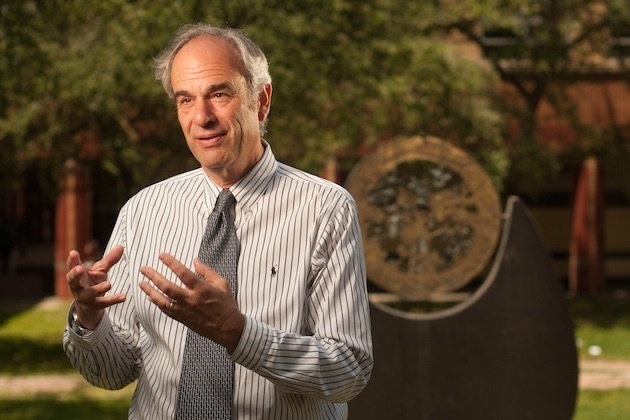
Started at UC Riverside, the Immortality Project has awarded 10 different research teams from both the U.S. and Europe $2.4 million in science grants. Distinguished UCR Professor of Philosophy John Martin Fischer initiated the project after he was given a $5 million dollar grant by the John Temple Foundation in July 2012 to oversee the three-year multidisciplinary study on issues surrounding the afterlife.
“We originally had 75 preliminary proposals,” said Fischer. “We invited 24 full proposals. The judges submitted their evaluations to me, and I made the final decisions.”
The panel of seven judges consists of scientists and philosophers from both the U.S. and Europe who Martin appointed based on their research profile, international stature and distinction.
The variety of research includes examining near-death experiences (NDE), assessing the influence of culture on afterlife beliefs and even examining a certain species of freshwater hydra that do not age and reproduce through cellular replication.
One of the selected research teams includes Michael Kinsella, a Ph.D student in the religious studies department at UCSB. He, along with Professor of Religious Studies Ann Taves and the director of the Cognition and Development Laboratory at UCSB Tamsin German, will look at how NDE-related accounts affect and reinforce people’s beliefs in the afterlife. Their study is entitled, “The Role of Near-Death Experiences in the Emergence of a Movement: A Quasi-Experimental Field Study of IANDS [International Association for Near Death Studies].”
Kinsella began writing a proposal for the Immortality Project as soon as he became aware of the opportunity. Submitting a letter of intent in December 2012, the team was invited to enter a full proposal on March 15.
“We are all very excited to have this opportunity to investigate the NDE movement,” said Kinsella. “Near-death studies have had a history of altering the public’s views on the nature of and best approach to death and dying, and this seems to be a wonderful time to explore the social and psychological implications of NDEs, related experiences and the meanings attributed to them.”
A separate allocation of $1.5 million is dedicated to immortality research on philosophy and theology. Fifteen anticipated projects are expected to be approved for non-science related studies, making a total of 25 different studies in the Immortality Project.
“The residual amount [totaling $1.1 million] will support the two major conferences, administration of the grant, the postdoctoral, graduate student support, the management of the website and institutional overhead for UCR,” said Martin.
The Science of Immortality projects are scheduled to conclude in the spring of 2015.








